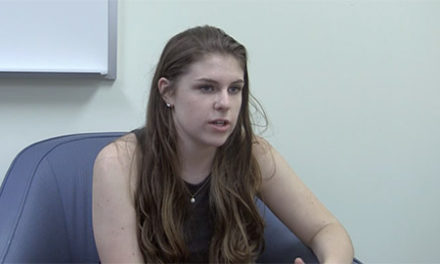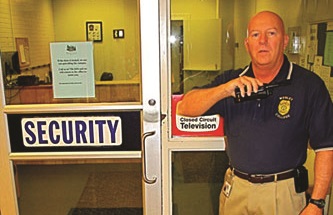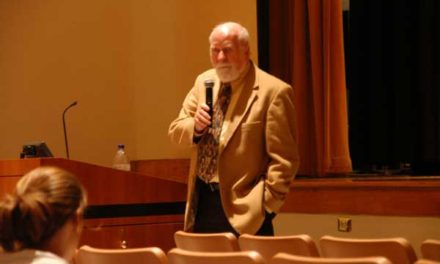By:Craig Foster (Whetstone Staff Writer)
Despite the condition of the economy and stories of graduating seniors who can’t find jobs, Jim Gorski, an exercise science senior at Wesley college, plans to graduate in December and move right into the job market.
But he doesn’t mind if the job doesn’t focus on his major.
He already has accepted a position as a law enforcement officer upon his graduation. And he doesn’t think his education has been wasted.
“Graduating college doesn’t just mean I understand one particular subject,†he said. “You have to take other courses to get well rounded. If nothing else, it shows an employer that I’ve dedicated myself and managed time well for the last four years.â€
Gorski is not alone. The number of students enrolled in college has risen steadily by about 1 percent nearly every year for the past 10 years.
But degree holders are facing the highest unemployment since records began in 1970, according to the Bureau of Labor Statistics (BLS). The bureau also reported that 17 million Americans hold jobs for which they are overqualified.
The 5.1 percent unemployment rate among degree holders is not a new trend, and it’s less than half the rate for the country.
Still, the number of jobless people with a college education has increased since 2000, and those with associate degrees have increased at an even quicker rate.
Most of the overqualified employees work in the service industry, including with the airlines, amusement or recreational parks, bars and hotel resorts. The records also show that more than 5,000 Ph.D.’s are working as janitors or maids.
Meanwhile, college tuition has risen steadily in the past 11 years, faster than the rate of inflation – that is, college costs are growing faster than wages. The average cost at a traditional four-year school peaked to more than $30,000 this year, a 6.3 percent increase.
Chris Rehak 23, of Salisbury, Md., holds a degree from East Tennessee State University for emergency response disaster management.
He is among those graduates who successfully entered the job market right out of college and into his field of study. Now working with a firm that handles disaster relief and prevention, Rehak feels his education was the best investment he ever made.
“I never let the situation of the economy scare me away from my goals because there isn’t really much you can do to fix that,†he said. “I think that if anything it should be a reason for more people to get a degree. When it comes down to getting hired, education is going to make you that much more attractive than the other guy.â€
The “other guy†is in even worse shape, according to the most recent report from the United States Department of Labor (USDL).
Although the USDL noted that unemployment for college graduates has been growing at a faster rate than those with less education, it does not spell doomsday for the graduates.
Those with a high school diploma are still facing unemployment rates of 10.3 percent twice that of college graduates. Those without a high school diploma or equivalent rank in at an even higher 15 percent.
Other results also show that those college graduates who are employed look to make $18,000 to $40,000 more a year, and nearly a $1 million more throughout their lifetimes than those without a higher education, ensuring that college still presents itself as an attractive investment.






